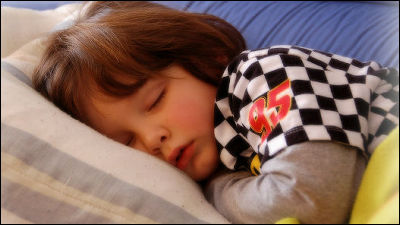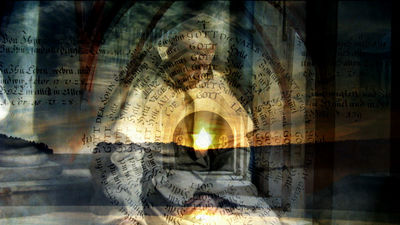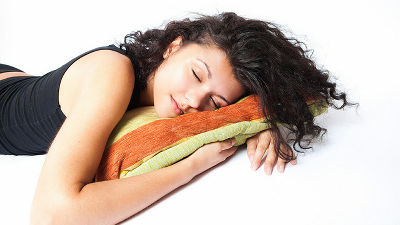It was after the Industrial Revolution that human beings slept soundly from night to morning.

In modern times, 'getting into bed at night and sleeping soundly until morning' is the usual style of sleep. However, it is said that it was
Can Medieval Sleeping Habits Fix America's Insomnia? --The Atlantic
https://www.theatlantic.com/ideas/archive/2022/01/medieval-sleeping-habits-insomnia-segmented-biphasic/621372/
Historian Roger Ekirch studies pre-industrial sleep habits. Ekirch discovered the words 'first sleep' and 'second sleep' in a British crime report written in the 1600s. In a subsequent investigation, similar words were found in the literature of other countries, such as 'primo somno (Latin)', 'primo sonno (Italian)' and 'premier sommeil (French)'. This suggests that in medieval Europe, there may have been a habit of two-phase sleep, in which one sleeps in two separate doses.
The time of waking between the first and second sleeps was called 'dorveille' in French. People used to dorveille, warmed up, prayed, loved their spouses, and looked back on the dreams they had before waking up and thought about God and the devil. Martin Luther, a theologian who sparked religious reforms in the 16th century, wrote in his diary, 'When I wake up every night, I usually rush to drive away the devil.' is.

According to Ekirch, the habit of two-phase sleep was lost only in modern times. Since the Industrial Revolution of the 18th century, productivity has become a virtue, work efficiency has been required, and the behavior of the day has been decided according to time, so people's life rhythms have changed drastically and two-phase sleep. Ekirch believes the habit has been lost. Especially in the United Kingdom and the United States, early rising was recommended by society as a whole in the middle of the 19th century.
Furthermore, with the advent of electric lighting at the end of the 19th century, the human body clock will be greatly affected. In a study conducted at the National Institute of Mental Health in the 1990s, subjects were banned from lighting at night, and within a few weeks of the start of the experiment, their daily sleep was segmented into multiple segments. It turned out. 'Every time we turn on the lights, we inadvertently take medicines that affect our sleep,' said Charles Czeisler, a sleep researcher at Harvard University.

Based on Ekirch's research, some researchers claim that 'humans are naturally two-phase sleep, and single-phase sleep that does not wake up until morning once it sleeps is relatively new and wrong.' But Eklirch says, 'The claim that'single-phase sleep is wrong and two-phase sleep is right'never captures the whole picture.'
Ekirch points out that pre-industrial sleep habits are not romantic in the first place. For example, at midnight crimes were rampant and robbers were much more likely to die. In addition, because the building technology was immature, the house was prone to leaks, had low fire, heat and cold resistance, and was often nested by pests such as fleas, lice and bed bugs.
Also, in France it was taken for granted to do household chores for dorveille, so it was practically only working hours for women. In addition, in order to induce a second sleep in this dorveille, he often takes drugs such as opium, and at the same time he induces drowsiness, he seems to have died from overdose.
In addition, a study conducted in 2021 reported that 'polyphasic sleep, in which sleep is divided into two or more times, results in poor overall sleep quality and long-lasting light sleep.' In other words, two-phase sleep in medieval Europe was by no means better than modern single-phase sleep.

'Human sleep has never been better than it is today in history. Compared to our ancestors, we live in better homes, sleep in better bedding, and pests at midnight. It's rarely crushed. If the purpose of sleep is mental and physical well-being, a good night's sleep will give better results. '
Related Posts:
in Science, Posted by log1i_yk







